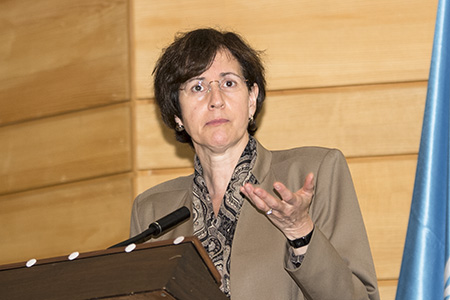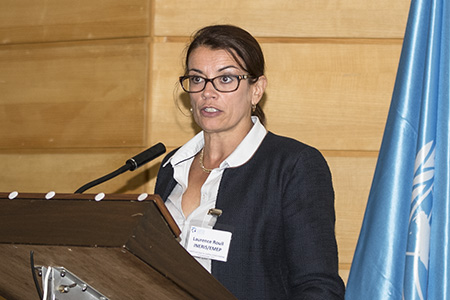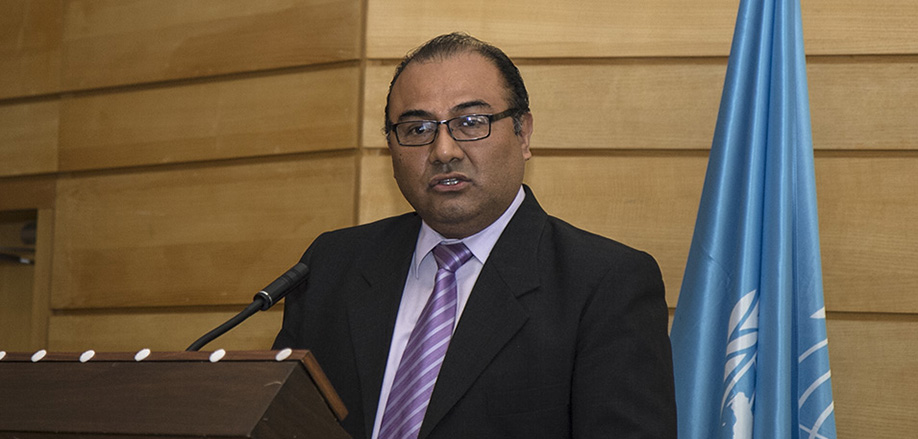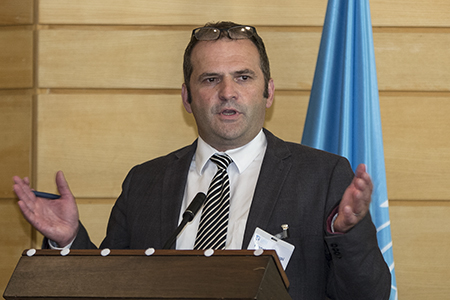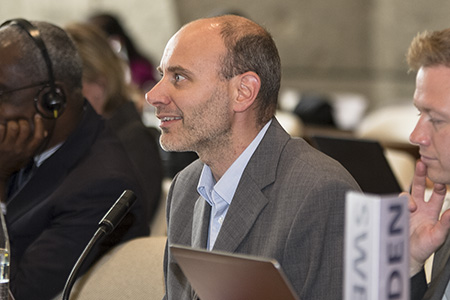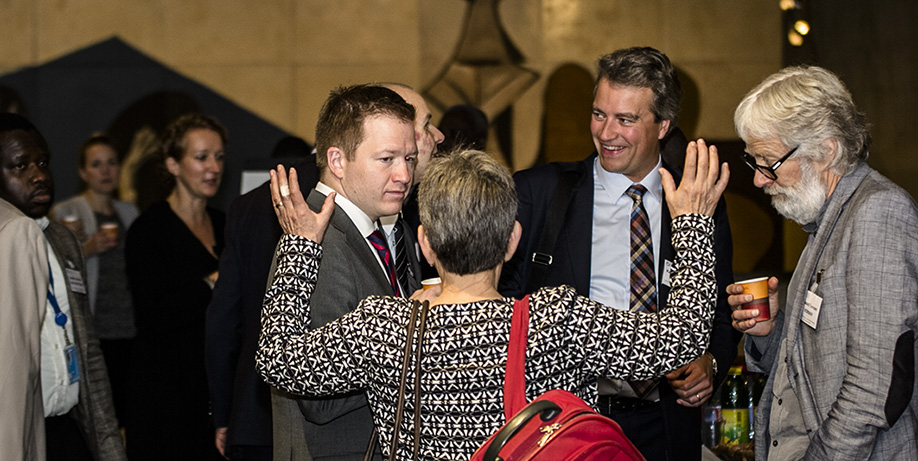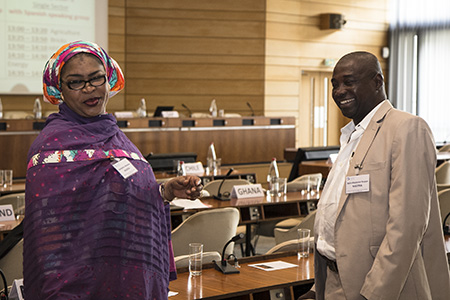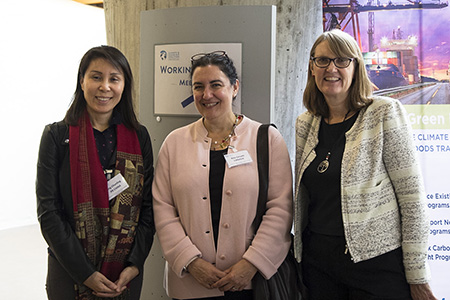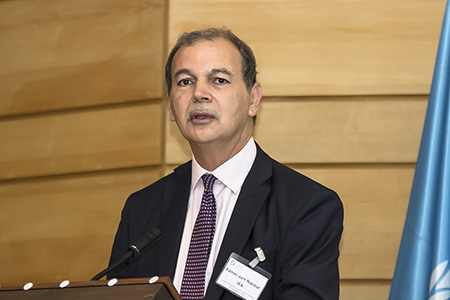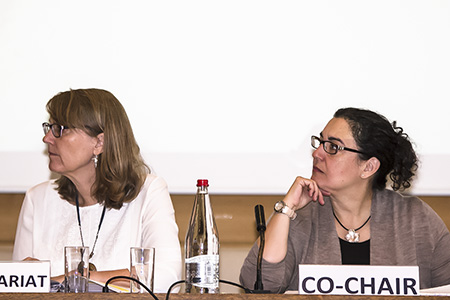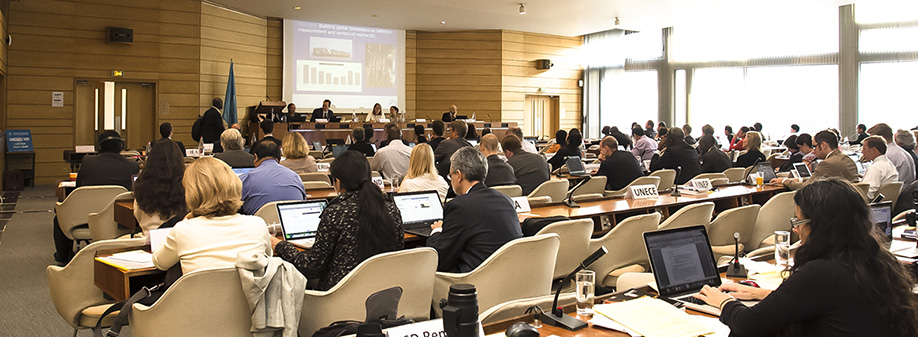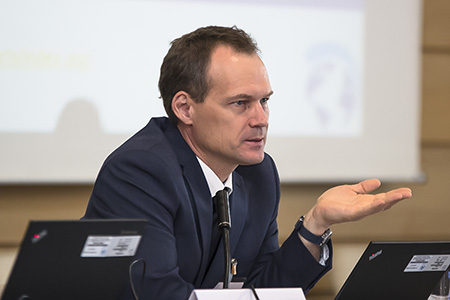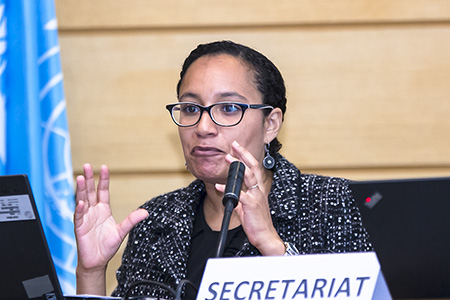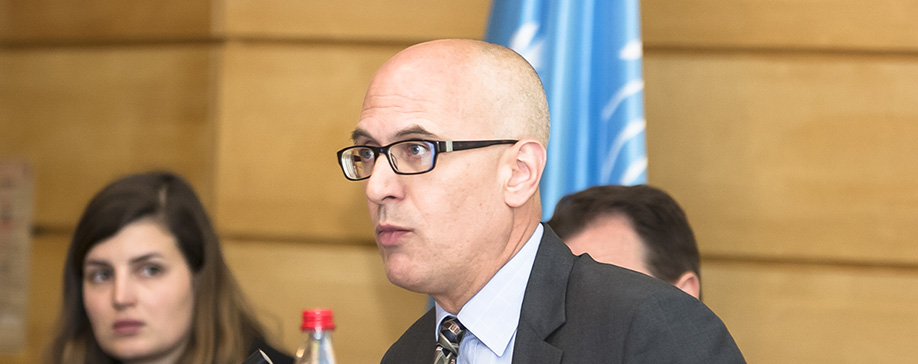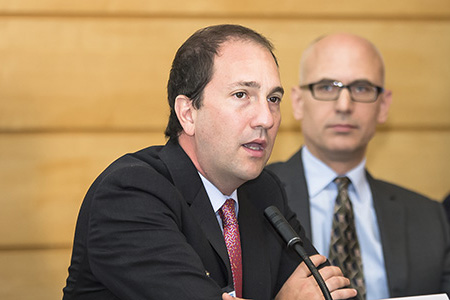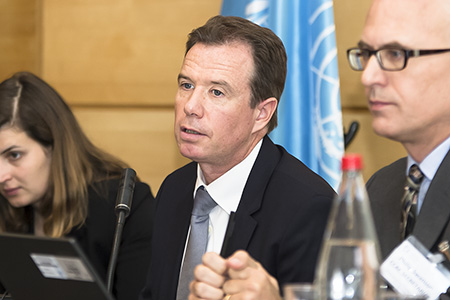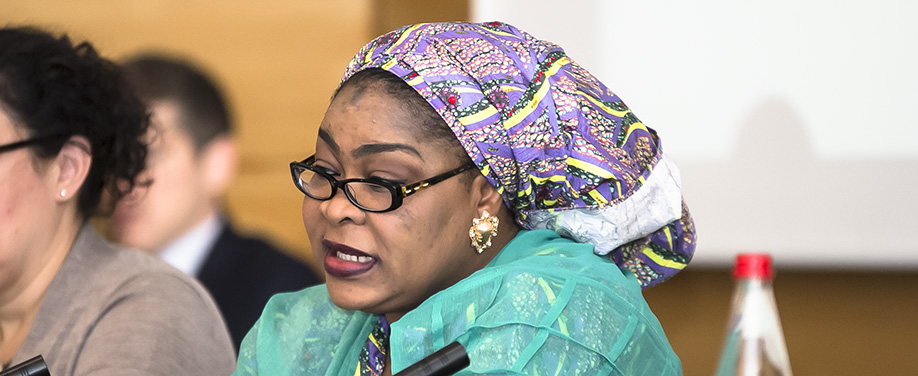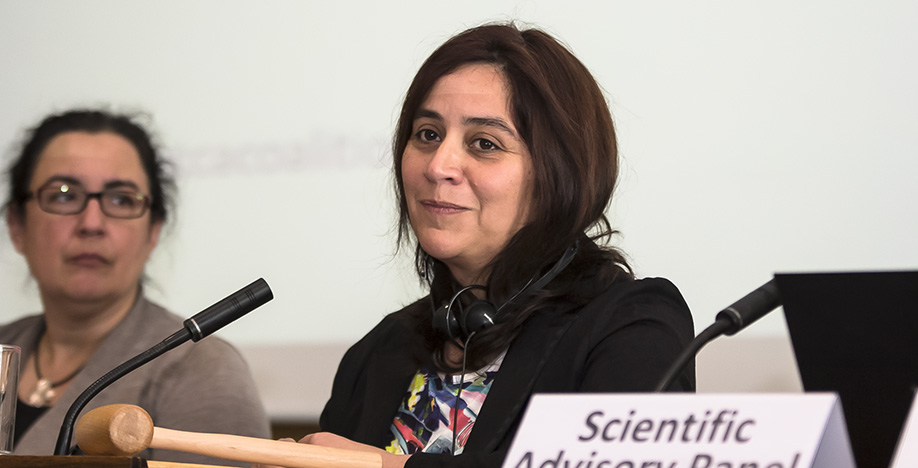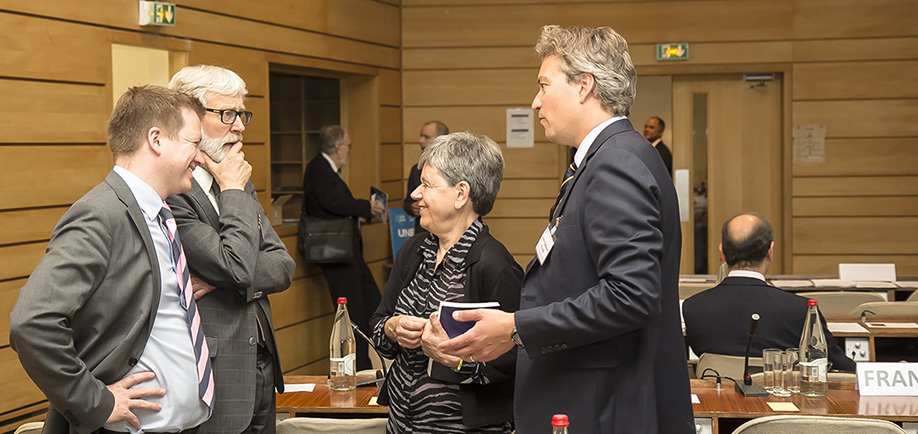18th Working Group of the Climate and Clean Air Coalition to
Reduce Short-Lived Climate Pollutants (CCAC)
20-21 September 2016 | Paris, France
Summary Highlights, 20-21 September 2016
Download ENB+ Meeting Report |
||||||
Receive our ENB+ bulletins and reports by email: |
||||||

| Follow @IISDRS | ||

Loading... |
||
|
Receive emailed updates with the news articles above plus related information and announcements from our CLIMATE-L community mailing list: |
||
Highlights for Tuesday, 20 September 2016
|
On Tuesday morning, 20 September, Climate and Clean Air Coalition (CCAC) WG Co-Chair Rita Cerutti, Canada, opened the meeting. After approving the agenda, participants heard video messages from Patricia Espinosa, UN Framework Convention on Climate Change Executive Secretary, and Erik Solheim, UN Environment Programme (UNEP) Executive Director. On near- and long-term approaches, Drew Shindell, Scientific Advisory Panel (SAP) Chair, presented, via video, a paper on Two Targets for Climate Action: Reducing the Risk for Current and Future Generations. Johan Kuylenstierna, SAP, added that the paper emanated from the science-policy dialogue at the last WG meeting and is based on the science behind the CCAC. Jo Tyndall, Co-Chair, Ad Hoc Working Group on the Paris Agreement, called for practical ways to ensure SLCPs are “part of the puzzle” as countries begin to implement their intended nationally determined contributions. On scaling up policy work on black carbon, Partners discussed ways the CCAC can catalyze more action on SLCP-relevant black carbon measures and opportunities for ministerial engagement, with panelists highlighting, inter alia: Arctic Council work on a framework to provide options for an ambitious quantitative goal on black carbon; black carbon-related work under the Convention on Long-range Transboundary Air Pollution (LRTAP); and an annual forum in Latin America for environmental ministers to discuss actions to reduce air pollution, which now includes SLCPs. The Working Group also discussed: a report on CCAC governance issues by the Task Team on Partnership and Process; proposed changes to the funding process; the CCAC Trust Fund; and Steering Committee (SC) and SAP membership. Presentations were also made on the SLCP Solutions Centre and the CCAC Draft Annual Report. Briefings on CCAC Initiatives were presented during a working lunch and a reception was held in the evening. |
||
|
IISD Reporting Services, through its ENB+ Meeting Coverage, has provided daily web coverage and a summary report from the 18th CCAC Working Group, which is available in HTML and PDF. + Visit the web coverage for Tuesday, 20 September 2016 | ||
|
|
|
|
|
|
|
|
|
Highlights for Tuesday, 21 September 2016
|
On Wednesday, 21 September, the CCAC Working Group met for its second and final day. In the morning, Kamel Ben Naceur, IEA, presented the World Energy Outlook Special Report 2016: Energy and Air Pollution. He noted that 99% of pollutant emissions are from the energy sector, and the sector accounts for 6.5 million premature deaths. The Working Group then heard briefings on two initiatives selected for possible consideration by the HLA. Regarding the Diesel Initiative, Fanta Kamakate, ICCT, and Rob de Jong, UNEP, presented on Reducing Black Carbon Emissions from Heavy-duty Diesel Vehicles and Engines. Kamakate reported that diesel exhaust emissions can be drastically reduced with the use of low sulfur fuels, while de Jong reported on a new Global Clean Ports initiative and a proposal to obtain HLA endorsement of a new Global Strategy to Introduce Low Sulfur Fuels and Cleaner Diesel Vehicles. Regarding the Oil and Gas Initiative, presentations were made by: Phil Swanson, Oil and Gas Initiative Coordinator, CCAC Secretariat, who discussed the Oil and Gas Methane Partnership; Drew Nelson, Environmental Defense Fund, who introduced a component on obtaining better data on methane leaks from the oil and gas sector for inclusion in the Oil and Gas Initiative; and Markus Klingbeil, IEA, who presented on an upcoming 2017 IEA special report on methane emissions. Bahijjahtu Abubakar, Nigeria, then reported on the non-methane Oil and Gas Initiative Technology Demonstration Component. In the afternoon, CCAC participants discussed the agenda for the upcoming HLA and messages for its draft communiqué. Co-Chair Cerutti highlighted two objectives: scaling up policy work on black carbon; and securing commitments from ministers to drive reductions of SLCPs in the transportation and oil and gas sectors. The communiqué will be open for comments and redrafted in advance of the HLA. The Working Group also discussed priorities for its meeting in Santiago, Chile, in April 2017. The meeting ended at 17:00. |
||
|
IISD Reporting Services, through its ENB+ Meeting Coverage, has provided daily web coverage and a summary report from the 18th CCAC Working Group, which is available in HTML and PDF. + Visit the web coverage for Tuesday, 21 September 2016 | ||
|
|
|
|
|
|
|
|
|
|
|


